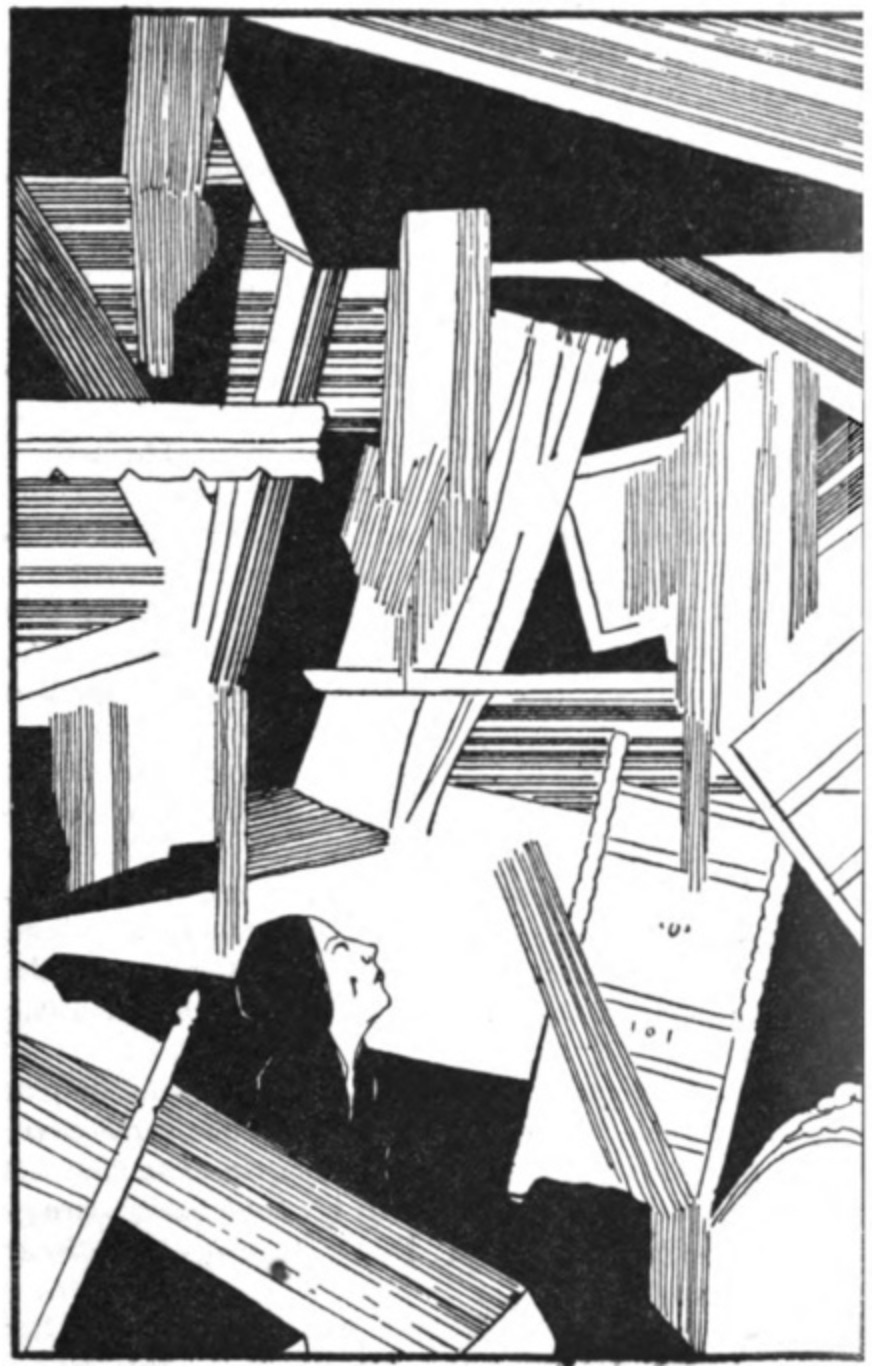WHERE THEIR FIRE IS NOT QUENCHED (2)
By:
January 11, 2024

May Sinclair’s “Where Their Fire is Not Quenched” was first published in the English Review in October 1922 and later appeared in Sinclair’s 1923 collection Uncanny Stories. It has frequently been reprinted in supernatural, horror, and fantasy anthologies; I’m grateful to Paul March-Russell, whose Modernism and Science Fiction encourages us to think of Sinclair as also being a proto-sf author. (PS: Interesting to compare this story’s ending with Sartre’s No Exit, p. 1944.) HiLoBooks is pleased to serialize it here for HILOBROW’s readers.
ALL INSTALLMENTS: 1 | 2 | 3 | 4 | 5 | 6 | 7 | 8 | 9 | 10.
She loved him; she loved his slenderness, his darkness and sallow whiteness, his black eyes lighting up with the intellectual flame, the way his black hair swept back from his forehead, the way he walked, tiptoe, as if his feet were lifted with wings.
He sat down beside her. She could see his hands tremble. She felt that her moment was coming; it had come.
“I wanted to see you alone because there’s something I must say to you. I don’t quite know how to begin….”
Her lips parted. She panted lightly.
“You’ve heard me speak of Sybill Foster?”
Her voice came stammering, “N-no, Stephen. Did you?”
“Well, I didn’t mean to, till I knew it was all right. I only heard yesterday.”
“Heard what?”
“Why, that she’ll have me. Oh, Harriott — do you know what it’s like to be terribly happy?”
She knew. She had known just now, the moment before he told her. She sat there, stone-cold and stiff, listening to his raptures; listening to her own voice saying she was glad.
Ten years passed.
Harriott Leigh sat waiting in the drawing-room of a small house in Maida Vale. She had lived there ever since her father’s death two years before.
She was restless. She kept on looking at the clock to see if it was four, the hour that Oscar Wade had appointed. She was not sure that he would come, after she had sent him away yesterday.
She now asked herself, why, when she had sent him away yesterday, she had let him come to-day. Her motives were not altogether clear. If she really meant what she had said then, she oughtn’t to let him come to her again. Never again.
She had shown him plainly what she meant. She could see herself, sitting very straight in her chair, uplifted by a passionate integrity, while he stood before her, hanging his head, ashamed and beaten; she could feel again the throb in her voice as she kept on saying that she couldn’t, she couldn’t; he must see that she couldn’t; that no, nothing would make her change her mind; she couldn’t forget he had a wife; that he must think of Muriel.
To which he had answered savagely: “I needn’t. That’s all over. We only live together for the look of the thing.”
And she, serenely, with great dignity: “And for the look of the thing, Oscar, we must leave off seeing each other. Please go.”
“Do you mean it?”
“Yes. We must never see each other again.”
And he had gone then, ashamed and beaten.
She could see him, squaring his broad shoulders to meet the blow. And she was sorry for him. She told herself she had been unnecessarily hard. Why shouldn’t they see each other again, now he understood where they must draw the line? Until yesterday the line had never been very clearly drawn. To-day she meant to ask him to forget what he had said to her. Once it was forgotten, they could go on being friends as if nothing had happened.
It was four o’clock. Half-past. Five. She had finished tea and given him up when, between the half-hour and six o’clock, he came.

He came as he had come a dozen times, with his measured, deliberate, thoughtful tread, carrying himself well braced, with a sort of held-in arrogance, his great shoulders heaving. He was a man of about forty, broad and tall, lean-flanked and short-necked, his straight, handsome features showing small and even in the big square face and in the flush that swamped it. The close-clipped, reddish-brown moustache bristled forwards from the pushed-out upper lip. His small, flat eyes shone, reddish-brown, eager and animal.
She liked to think of him when he was not there, but always at the first sight of him she felt a slight shock. Physically, he was very far from her admired ideal. So different from George Waring and Stephen Philpotts.
He sat down, facing her.
There was an embarrassed silence, broken by Oscar Wade.
“Well, Harriott, you said I could come.” He seemed to be throwing the responsibility on her.
“So I suppose you’ve forgiven me,” he said.
“Oh, yes, Oscar, I’ve forgiven you.”
He said she’d better show it by coming to dine with him somewhere that evening.
She could give no reason to herself for going. She simply went.
RADIUM AGE PROTO-SF: “Radium Age” is Josh Glenn’s name for the nascent sf genre’s c. 1900–1935 era, a period which saw the discovery of radioactivity, i.e., the revelation that matter itself is constantly in movement — a fitting metaphor for the first decades of the 20th century, during which old scientific, religious, political, and social certainties were shattered. More info here.
SERIALIZED BY HILOBOOKS: James Parker’s Cocky the Fox | Annalee Newitz’s “The Great Oxygen Race” | Matthew Battles’s “Imago” | & many more original and reissued novels and stories.
